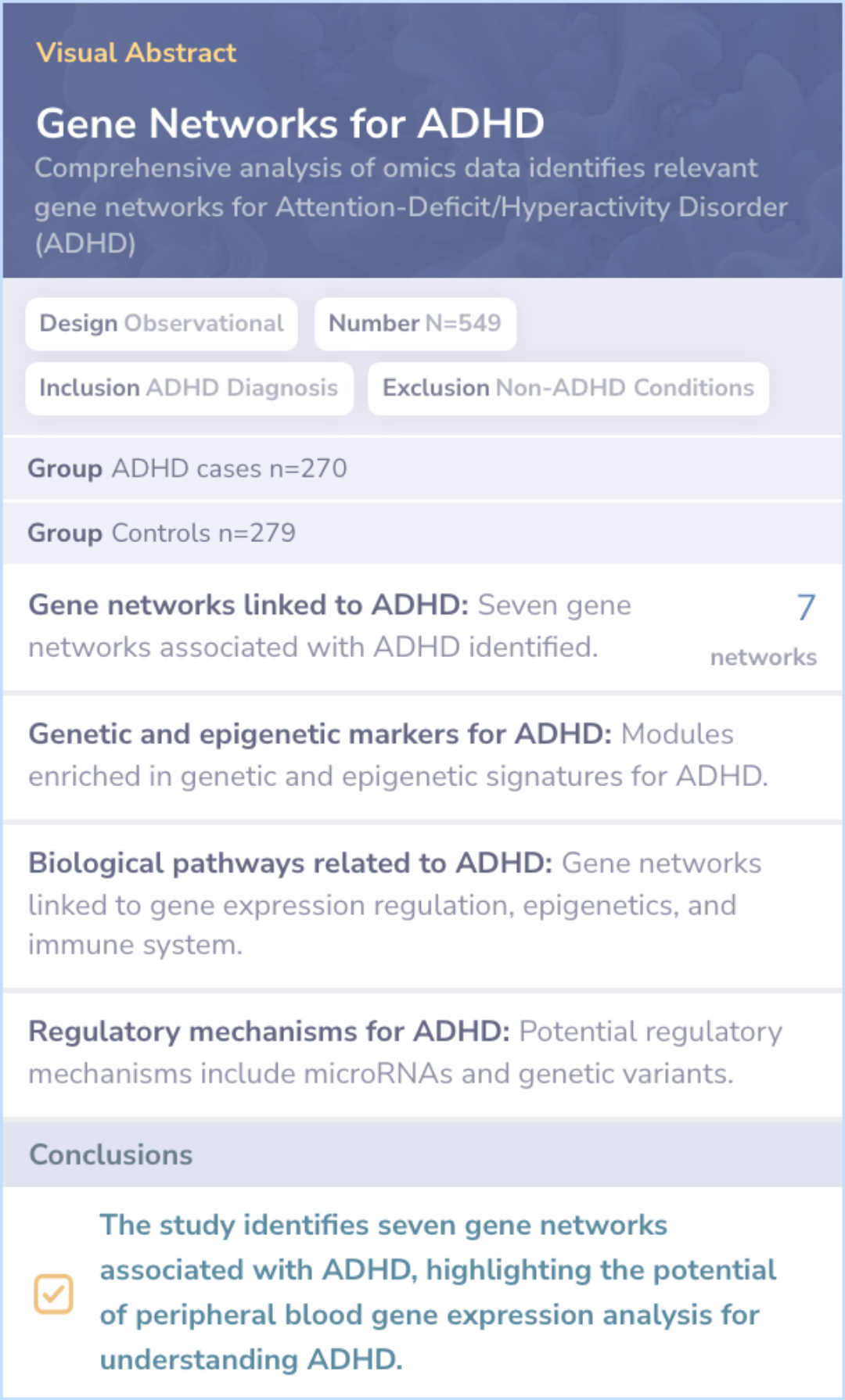Trending ADHD Papers
Visual Abstract
Genome-wide analyses of ADHD identify 27 risk loci, refine the genetic architecture and implicate several cognitive domains
ADHD Genome-wide Analysis Identifies 27 Risk Loci
December 9, 2024
author
Demontis D, Walters GB, Athanasiadis G, Walters R, Therrien K, Nielsen TT, Farajzadeh L, Voloudakis G, Bendl J, Zeng B, Zhang W, Grove J, Als TD, Duan J, Satterstrom FK, Bybjerg-Grauholm J, Bækved-Hansen M, Gudmundsson OO, Magnusson SH, Baldursson G, Davidsdottir K, Haraldsdottir GS, Agerbo E, Hoffman GE, Dalsgaard S, Martin J, Ribasés M, Boomsma DI, Soler Artigas M, Roth Mota N, Howrigan D, Medland SE, Zayats T, Rajagopal VM, Nordentoft M, Mors O, Hougaard DM, Mortensen PB, Daly MJ, Faraone SV, Stefansson H, Roussos P, Franke B, Werge T, Neale BM, Stefansson K, Børglum AD
journal
Nat Genet
Date Published
2023 Feb
Why link to a visual abstract?
What is a visual abstract?
Original
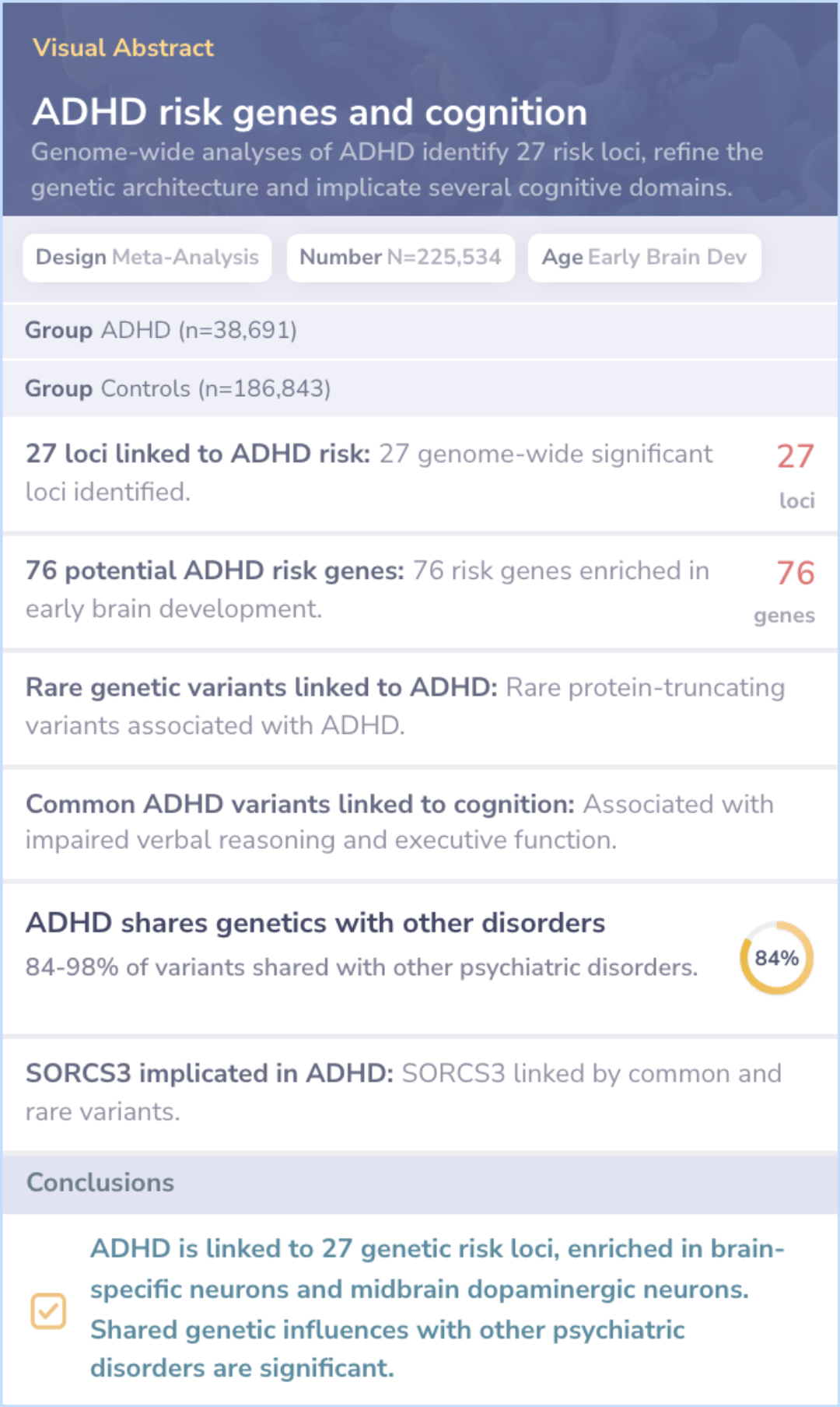
Study Summary
🔬
What They Studied
The study aimed to analyze the genetic components contributing to ADHD by conducting a genome-wide association study meta-analysis.
💡
What They Found
Researchers identified 27 significant genetic loci affecting ADHD risk and found associations with specific brain neurons and cognitive impairments.
📚
What This Means
These findings suggest that ADHD has a strong genetic link, with implications for cognitive functions, notably rich in details compared to earlier studies focusing mainly on treatment or symptomatic management.
Study Overview
Background & Objectives
Attention-deficit hyperactivity disorder (ADHD) is a common neurodevelopmental condition with a strong genetic component. This study aims to uncover genetic factors contributing to ADHD by analyzing DNA from individuals with and without the condition.
Researchers conducted a large-scale genome-wide association study (GWAS) involving over 38,000 people with ADHD and nearly 187,000 control subjects, seeking to identify significant genetic differences.
Researchers conducted a large-scale genome-wide association study (GWAS) involving over 38,000 people with ADHD and nearly 187,000 control subjects, seeking to identify significant genetic differences.
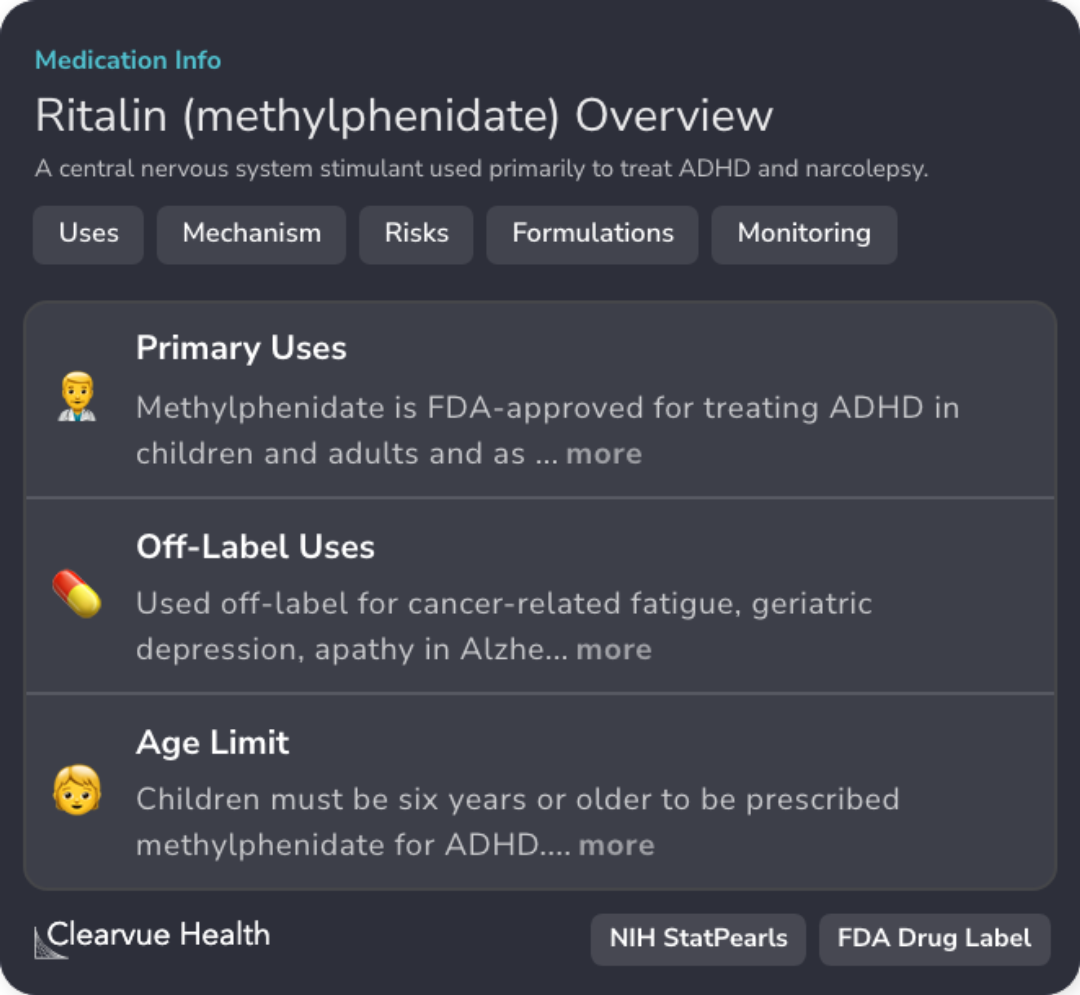
Abstract: background
Attention-deficit hyperactivity disorder (ADHD) is a prevalent neurodevelopmental disorder with a major genetic component. Here, we pre...more
Study Summary
Methods
Researchers pinpointed 27 key genetic areas and highlighted 76 genes, mainly affecting brain development. These genes are often active in certain types of brain cells, including those in the midbrain.
By examining genetic data from nearly 18,000 people, researchers found more rare genetic changes in ADHD-related genes, suggesting a notable gene, SORCS3, might play a role.
By examining genetic data from nearly 18,000 people, researchers found more rare genetic changes in ADHD-related genes, suggesting a notable gene, SORCS3, might play a role.
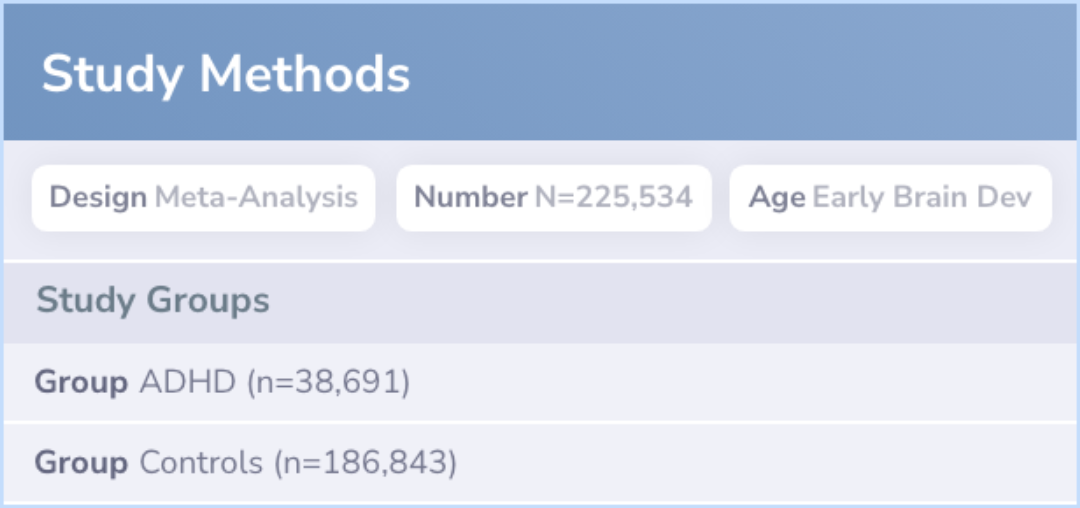
Abstract: methods
We identified 27 genome-wide significant loci, highlighting 76 potential risk genes enriched among genes expressed particularly in earl...more
Study Results
Results
The study showed that a large portion of the genetic variants affecting ADHD are shared with other mental health issues. This overlap indicates a strong genetic link between ADHD and these disorders.
Moreover, ADHD-related genes were connected to difficulties in advanced thinking, like verbal skills and executive functions, which involve planning and attention.
Moreover, ADHD-related genes were connected to difficulties in advanced thinking, like verbal skills and executive functions, which involve planning and attention.
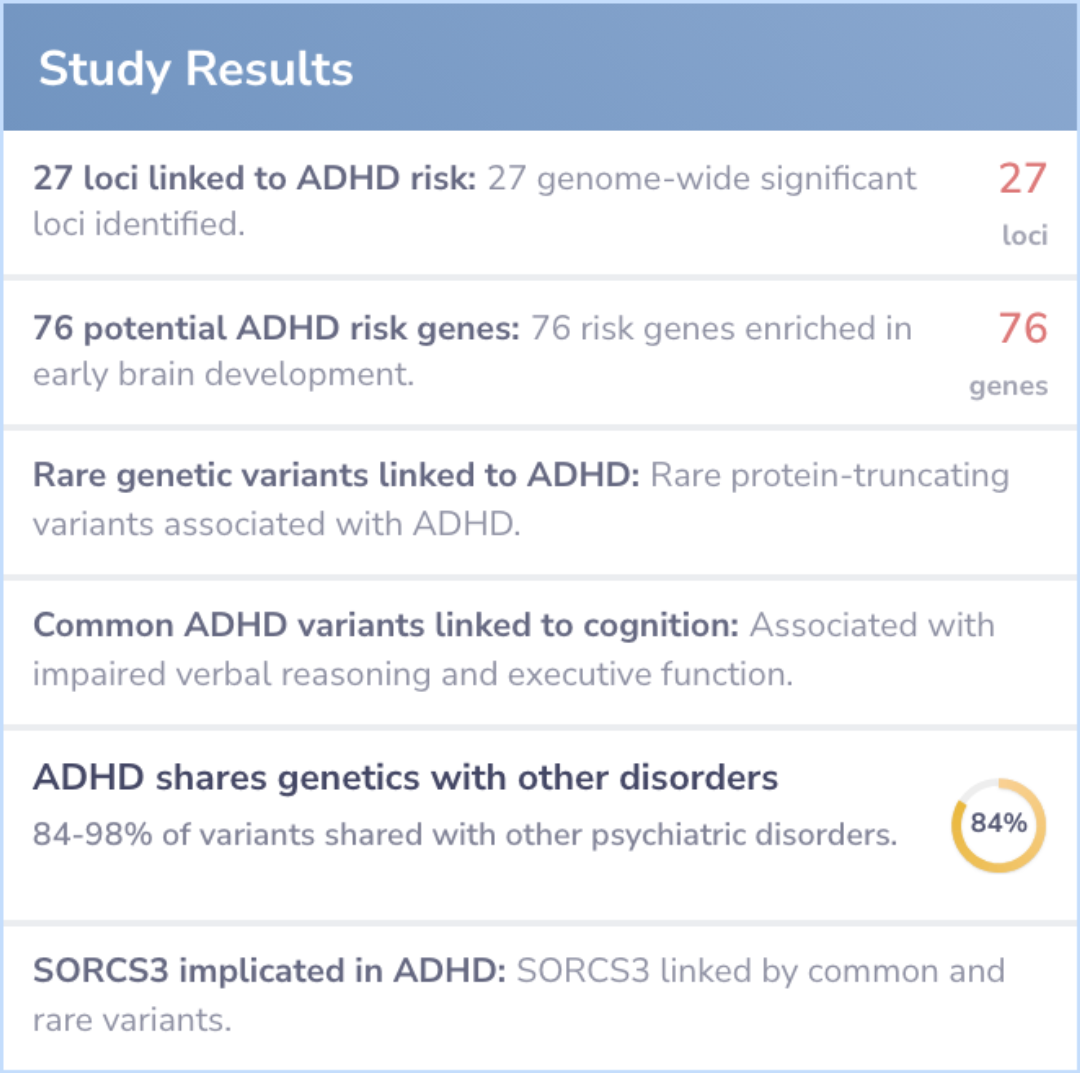
Abstract: results
Bivariate Gaussian mixture modeling estimated that 84-98% of ADHD-influencing variants are shared with other psychiatric disorders. In ...more
Study Summary
Conclusions
The study sheds light on the complex genetic makeup of ADHD, showing how it intertwines with other mental health aspects.
These insights suggest certain areas of thinking are particularly tied to ADHD, offering a clearer path to understanding and potentially treating the disorder.
These insights suggest certain areas of thinking are particularly tied to ADHD, offering a clearer path to understanding and potentially treating the disorder.
Abstract: conclusions
The findings refine the genetic architecture of ADHD and implicate several cognitive domains in the disorder.
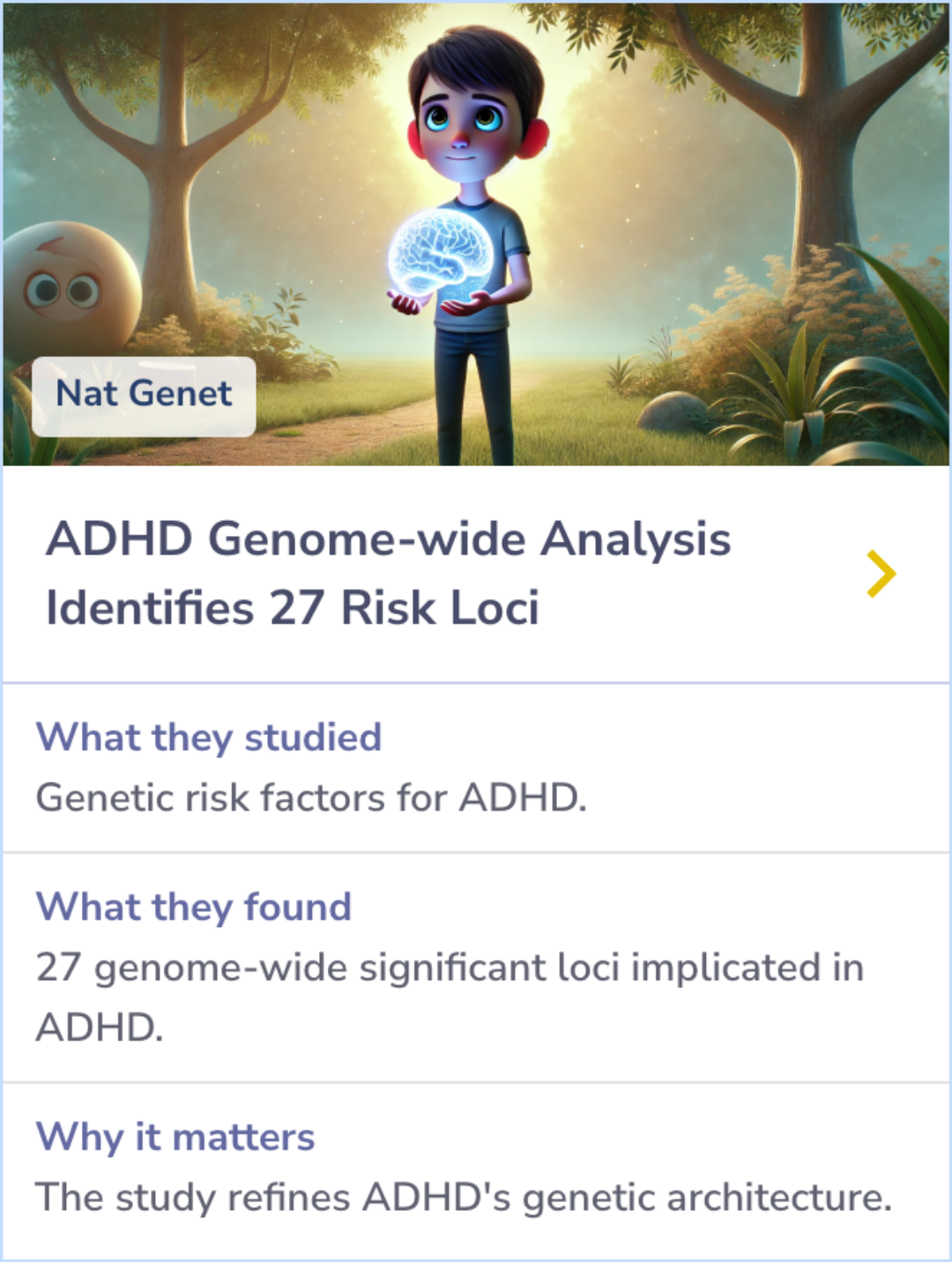
Clinical Guidelines
Guidelines suggest that ADHD evaluations should include assessing coexisting disorders as they commonly occur with ADHD and impact treatment.
Methylphenidate emerges as the first-line medication for preschool children due to limited data on alternatives.
For adults, stimulant medication combined with cognitive-behavioral therapy is the recommended first-line treatment.
Methylphenidate emerges as the first-line medication for preschool children due to limited data on alternatives.
For adults, stimulant medication combined with cognitive-behavioral therapy is the recommended first-line treatment.
Literature Review
Yang et al, 2013
Core Insight:The comparison paper highlights the genetic complexity in ADHD, focusing on both common and rare variants, although no single variant reached genome-wide significance, unlike the 27 loci in the main paper.
What It Adds:
Focus on Han Chinese sample: Explores ADHD genetics in Han Chinese, contrasting with main study's broader population.
Emphasis on rare CNVs: Finds increased burden of large rare CNVs, unlike the focus on common variants in the main paper.
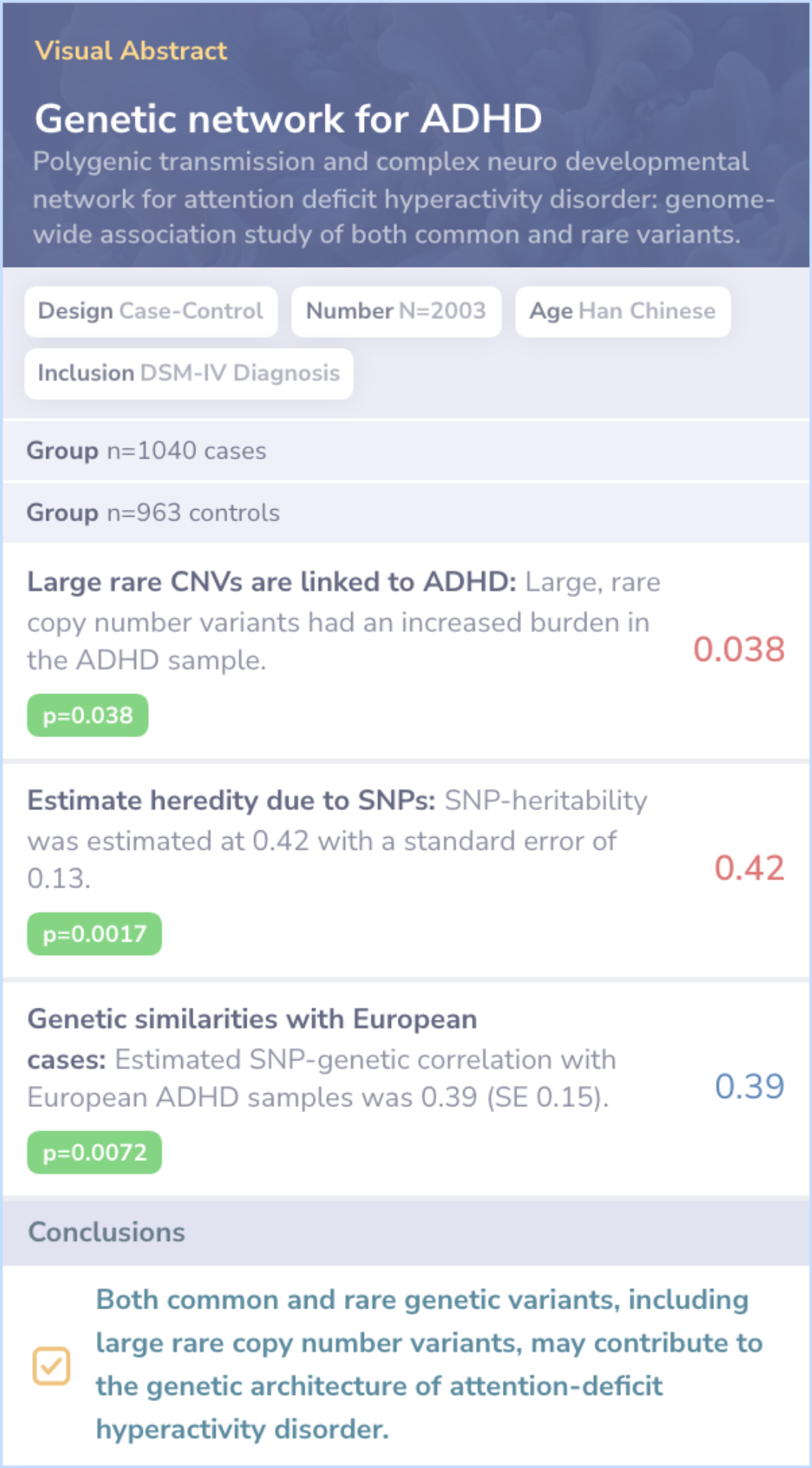
Literature Review
Demontis et al, 2019
Core Insight:The main paper and the comparison paper both pinpoint genetic links to ADHD but differ in the number of identified loci and specific insights into genetic enrichment.
What It Adds:
Enriched Genomic Areas: This paper identifies variants in constrained regions, linking genes to evolutionary aspects.
Educational Links: Highlights a relationship between ADHD genetics and educational traits.
Shared Themes:Both papers agree on the genetic component of ADHD, emphasizing the influence of common variants on ADHD traits.
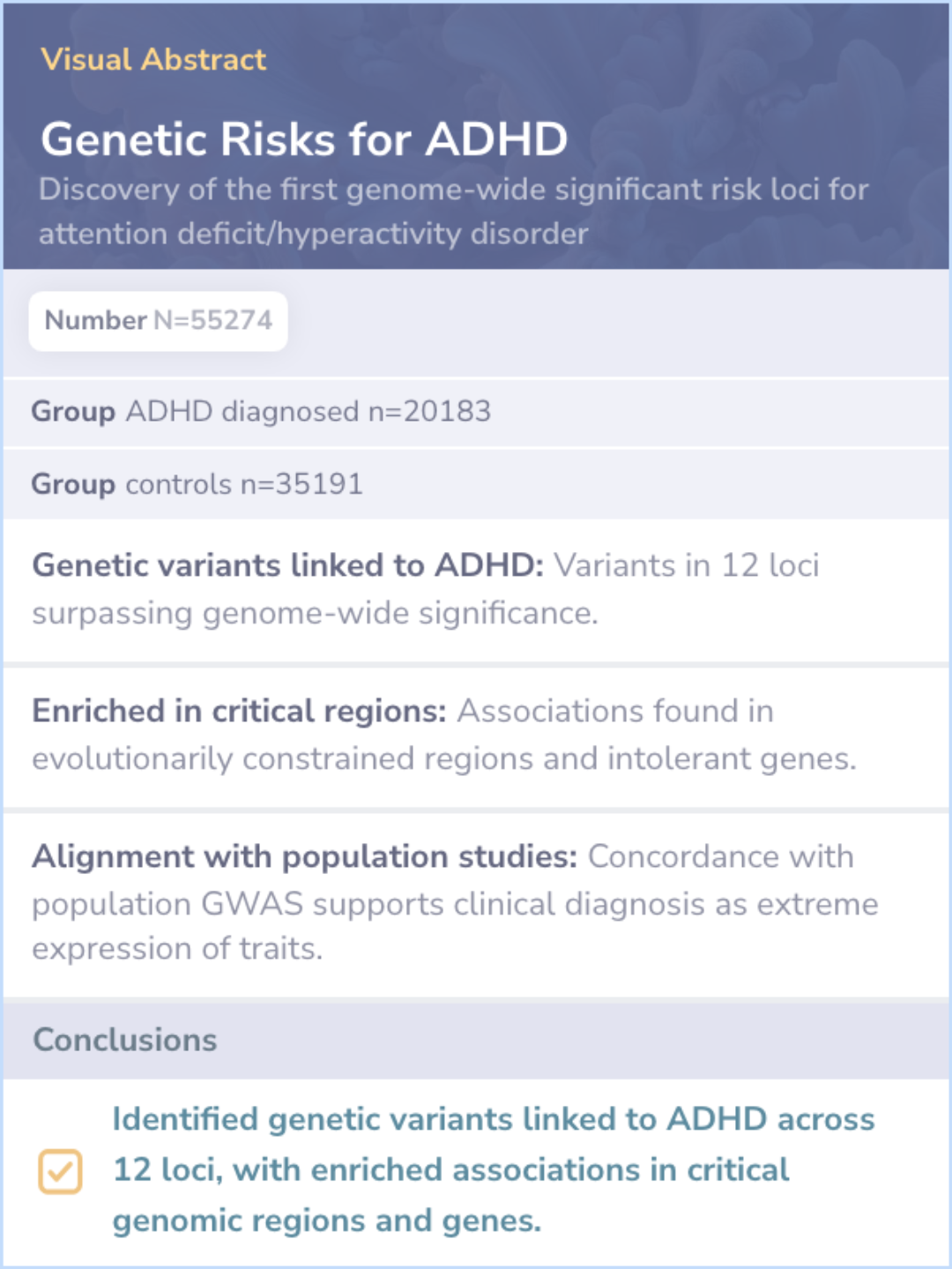
Literature Review
Cabana-Domínguez et al, 2022
Core Insight:Both papers highlight genetic contributions to ADHD but focus on different aspects. The main paper emphasizes genome-wide associations and genetic loci, whereas this paper delves into gene expression and regulatory pathways using blood cells.
What It Adds:
Gene Modules Discovery: New understanding of ADHD through gene expression in blood cells.
Multi-Omics Approach: Broadens ADHD understanding by integrating genetic and epigenetic data.
Key Differences:The main paper explores early brain development genes, while this paper focuses on gene expression in peripheral blood cells, showing different approaches in ADHD research.
